 Griffith sued his former employer under state law, referring in the pleading to a charge he filed with the EEOC and its issuance of a right-to-sue notice. Alcon removed based on federal question jurisdiction; the district court accepted the removal and granted summary judgment to the employer. The Fifth Circuit reversed: “Although Griffith indeed referenced his dealings with the EEOC in his complaint, he did not mention Title VII or any similar federal statute. As such, the district court lacked subject-matter jurisdiciton and was not entitled to render judgment in Alcon’s favor.” Griffith v. Alcon Research, No. 17-20290 (Dec. 6, 2017, unpublished).
Griffith sued his former employer under state law, referring in the pleading to a charge he filed with the EEOC and its issuance of a right-to-sue notice. Alcon removed based on federal question jurisdiction; the district court accepted the removal and granted summary judgment to the employer. The Fifth Circuit reversed: “Although Griffith indeed referenced his dealings with the EEOC in his complaint, he did not mention Title VII or any similar federal statute. As such, the district court lacked subject-matter jurisdiciton and was not entitled to render judgment in Alcon’s favor.” Griffith v. Alcon Research, No. 17-20290 (Dec. 6, 2017, unpublished).
 DRI’s 2018 Appellate Advocacy Seminar will be held at the Planet Hollywood Resort in Las Vegas from March 14-15, 2018. This year’s seminar will include valuable insights into effective advocacy (including tips from Bryan Garner), and joint sessions with trial court practitioners. The seminar promises great networking opportunities with judges, appellate practitioners and trial advocates from across the country. This year’s seminar will be held in conjunction with the Trial Tactics Seminar, and anyone attending the appellate seminar can attend the final day of the Trial Tactics Seminar for no cost. The seminar also coincides with the beginning of the NCAA men’s basketball tournament, a great time to enjoy the excitement of Las Vegas. You can register for the Appellate Seminar here. Save $100 and get the best hotel rates when you register and book by February 13, 2018.
DRI’s 2018 Appellate Advocacy Seminar will be held at the Planet Hollywood Resort in Las Vegas from March 14-15, 2018. This year’s seminar will include valuable insights into effective advocacy (including tips from Bryan Garner), and joint sessions with trial court practitioners. The seminar promises great networking opportunities with judges, appellate practitioners and trial advocates from across the country. This year’s seminar will be held in conjunction with the Trial Tactics Seminar, and anyone attending the appellate seminar can attend the final day of the Trial Tactics Seminar for no cost. The seminar also coincides with the beginning of the NCAA men’s basketball tournament, a great time to enjoy the excitement of Las Vegas. You can register for the Appellate Seminar here. Save $100 and get the best hotel rates when you register and book by February 13, 2018.
 Johnson v. Real Estate Mortgage Network, Inc. reminds of a technical but important point about the review of remand orders under CAFA in the Fifth Circuit: “Facing our CAFA deadline, we continue to apply [prior preceden’s] suggestion that our jurisdiction to review a CAFA remand order stops at the edge of the CAFA portion of the order,” and does not extend to “every issue decided in the remand order, including federal question jurisdiction.” No. 17-30768 (Nov. 30, 2017).
Johnson v. Real Estate Mortgage Network, Inc. reminds of a technical but important point about the review of remand orders under CAFA in the Fifth Circuit: “Facing our CAFA deadline, we continue to apply [prior preceden’s] suggestion that our jurisdiction to review a CAFA remand order stops at the edge of the CAFA portion of the order,” and does not extend to “every issue decided in the remand order, including federal question jurisdiction.” No. 17-30768 (Nov. 30, 2017).
 A premature notice of appeal is certainly better than nothing, but may not be enough, as the Fifth Circuit noted in Johnson v. Real Estate Mortgage Network, Inc.: “Before we address Johnson’s contentions on appeal, we note that Johnson’s notice of appeal from the summary judgment dismissing the claims against some, but not all, of the defendants, was premature. Nevertheless, because the district court could have certified that the summary judgment was appealable, and it subsequently entered a final judgment, the notice of appeal gives us appellate jurisdiction over the summary judgment. However, because Johnson did not file a notice of appeal from the final judgment, which dismissed his remaining claims against REMNI/Homebridge, we do not have jurisdiction to consider the dismissal of his claims against REMNI/Homebridge.” No. 17-20347 (Dec. 1, 2017, unpublished).
A premature notice of appeal is certainly better than nothing, but may not be enough, as the Fifth Circuit noted in Johnson v. Real Estate Mortgage Network, Inc.: “Before we address Johnson’s contentions on appeal, we note that Johnson’s notice of appeal from the summary judgment dismissing the claims against some, but not all, of the defendants, was premature. Nevertheless, because the district court could have certified that the summary judgment was appealable, and it subsequently entered a final judgment, the notice of appeal gives us appellate jurisdiction over the summary judgment. However, because Johnson did not file a notice of appeal from the final judgment, which dismissed his remaining claims against REMNI/Homebridge, we do not have jurisdiction to consider the dismissal of his claims against REMNI/Homebridge.” No. 17-20347 (Dec. 1, 2017, unpublished).
 In City of San Antonio v. Hotels.com, the Fifth Circuit reversed an $84 million judgment for several cities, against online hotel reservation services, relating to the collection of local occupancy taxes. The holding turned entirely on the force of an intermediate Texas appellate opinon under the Erie doctrine. In its reasoning, the Fifth Circuit rejected a number of arguments against following that opinion, including: (1) the scope of the record before the courts; (2) the analytical framework used by the Texas court; and (3) the precise language of the relevant ordinance. The Court was satisfied with the general principles relied upon by the Texas opinion, as well as its resolution of “absurd result” arguments made in both cases. No. 16-50479 (Nov. 29, 2017). The Dallas Morning News has a good summary of the issues and history of this long-running litigation.
In City of San Antonio v. Hotels.com, the Fifth Circuit reversed an $84 million judgment for several cities, against online hotel reservation services, relating to the collection of local occupancy taxes. The holding turned entirely on the force of an intermediate Texas appellate opinon under the Erie doctrine. In its reasoning, the Fifth Circuit rejected a number of arguments against following that opinion, including: (1) the scope of the record before the courts; (2) the analytical framework used by the Texas court; and (3) the precise language of the relevant ordinance. The Court was satisfied with the general principles relied upon by the Texas opinion, as well as its resolution of “absurd result” arguments made in both cases. No. 16-50479 (Nov. 29, 2017). The Dallas Morning News has a good summary of the issues and history of this long-running litigation.
 It’s that time of year again. The polls are open until the end of November to vote for next year’s listings of Texas SuperLawyers; online voting can be done at the SuperLawyers website, here.
It’s that time of year again. The polls are open until the end of November to vote for next year’s listings of Texas SuperLawyers; online voting can be done at the SuperLawyers website, here.
Melton v. Phillips, No. 15-10604 (Nov. 13, 2017), a difficult qualified immunity case that required en banc review to resolve, features a concurrence with the unusual verb “cross-pollinated” to describe a confluence of two lines of authority. That perspective on the development of common law recalls the concept of “vegetation” in early scientific thought, used to describe vigorous and lively growth not just in plant life, but throughout nature. Indeed, no less than Isaac Newton wrote a paper about “Chymystry” titled “On Nature’s Obvious Laws and Processes in Vegetation”:
 In an insurance coverage dispute, the district court granted both sides’ motions for summary judgment as to the meaning of various policy terms. The net result was final judgment for the insurance company. The insured appealed; the insurer cross-appealed, and on that procedural point, the Fifth Circuit held that the cross-appeal was unnecessary, noting:
In an insurance coverage dispute, the district court granted both sides’ motions for summary judgment as to the meaning of various policy terms. The net result was final judgment for the insurance company. The insured appealed; the insurer cross-appealed, and on that procedural point, the Fifth Circuit held that the cross-appeal was unnecessary, noting:
- “National Union is conflating the district court’s opinion (i.e., the order) with its judgment. Appellate courts review judgments, not opinions. . . . To the extent that the district court rejected the arguments in National Union’s cross-appeal, ‘an appellee may urge any ground available in support of a judgment even if that ground was . . . rejected by the trial court.'” (citations omitted);
- The recent case of ART Midwest v. Atlantic Limited Partnership XII,742 F.3d 206 (5th Cir. 2014), in which a party was not allowed to raise certain issues after not taking a cross-appeal, was distinguishable because judgment had actually been entered against that party on those issues. “Here,there is no adverse judgment against National Union, such that it might need to protect its rights—just some adverse reasoning”; and
- “This is not just formalism. ‘A cross-appeal filed for the sole purpose of advancing additional arguments in support of a judgment is “worse than unnecessary”, because it disrupts the briefing schedule, increases the number (and usually the length) of briefs, and tends to confuse the issues.’ . . . In this case, National Union’s improper cross-appeal resulted in an over-length opposition brief and an additional reply (giving National Union over four thousand words of additional briefing).” (citations omitted)
Cooper Indus. v. Nat’l Union Fire Ins. Co., No. 16-20539 (revised Dec. 11, 2017).
 The Fifth Circuit affirmed a JNOV motion on damages, under Texas law, when the plaintiff proved gross profits rather than net profits. “Its expert witness testified that he used ThermoTek’s gross profit margin—gross sales, less the cost of those goods sold, divided by gross sales—to calculate lost profits. He then stated that he reached his lost-profit totals for the VascuTherm units and wraps by (1) multiplying the average sales ThermoTek made to Wilford each month by the unit sales price and relevant time period, and (2) deducting the cost of the goods sold. But that is the very definition of gross profits. See Black’s Law Dictionary, supra (defining gross profits as “[t]otal sales revenue less the cost of the goods sold, no adjustment being made for additional expenses and taxes”). Motion Medical Technologies v. Thermotek, No. 16-11381 (Nov. 14, 2017).
The Fifth Circuit affirmed a JNOV motion on damages, under Texas law, when the plaintiff proved gross profits rather than net profits. “Its expert witness testified that he used ThermoTek’s gross profit margin—gross sales, less the cost of those goods sold, divided by gross sales—to calculate lost profits. He then stated that he reached his lost-profit totals for the VascuTherm units and wraps by (1) multiplying the average sales ThermoTek made to Wilford each month by the unit sales price and relevant time period, and (2) deducting the cost of the goods sold. But that is the very definition of gross profits. See Black’s Law Dictionary, supra (defining gross profits as “[t]otal sales revenue less the cost of the goods sold, no adjustment being made for additional expenses and taxes”). Motion Medical Technologies v. Thermotek, No. 16-11381 (Nov. 14, 2017).
 “We have twice held that Texas’s unfair competition-by-misappropriation tort does not afford protection qualitatively different from federal copyright law. We do so again here.” Motion Medical Technologies v. Thermotek, No. 16-11381 (Nov. 14, 2017) (citing Ultraflo Corp. v. Pelican Tank Parts, Inc., 945 F.3d 652, 657-59 (5th Cir. 2017) and Alcatel USA, Inc. v. DGI Techs., Inc., 166 F.3d 772, 787-89 (5th Cir. 1999)).
“We have twice held that Texas’s unfair competition-by-misappropriation tort does not afford protection qualitatively different from federal copyright law. We do so again here.” Motion Medical Technologies v. Thermotek, No. 16-11381 (Nov. 14, 2017) (citing Ultraflo Corp. v. Pelican Tank Parts, Inc., 945 F.3d 652, 657-59 (5th Cir. 2017) and Alcatel USA, Inc. v. DGI Techs., Inc., 166 F.3d 772, 787-89 (5th Cir. 1999)).
 The Fifth Circuit recently “walked back” its May opinion in EEOC v. BDO USA, which identified three problems with a privilege log. A revised opinion removed that discussion, in favor of a shorter, more general observation about there being “no presumption that a company’s communications with counsel are privileged.” The new opinion observed: “Given the ‘broad’ and ‘considerable discretion’ district courts have in discovery matters, we will not analyze the privilege logs in the first instance.” EEOC v. BDO USA, No. 16-20314 (revised Nov. 16, 2017).
The Fifth Circuit recently “walked back” its May opinion in EEOC v. BDO USA, which identified three problems with a privilege log. A revised opinion removed that discussion, in favor of a shorter, more general observation about there being “no presumption that a company’s communications with counsel are privileged.” The new opinion observed: “Given the ‘broad’ and ‘considerable discretion’ district courts have in discovery matters, we will not analyze the privilege logs in the first instance.” EEOC v. BDO USA, No. 16-20314 (revised Nov. 16, 2017).
 Yes, according to Alexander v. Verizon Wireless Services LLC:
Yes, according to Alexander v. Verizon Wireless Services LLC:
Although many style guides, such as the Chicago Manual of Style, and news sources, such as the Associated Press, no longer instruct writers to capitalize “Internet,” we decline to follow this trend. For many, such as the New York Times, the reason for the change to “internet” is simple: others were doing it, so they thought they should, too. “Internet,” however, was originally capitalized to distinguish the global network from other internets—short for “inter networks”—which are collections of smaller networks that communicate using the same protocols. In our view, this still makes the word a proper noun, regardless of how often people refer to other internets. Furthermore, to the extent “decapitalizing [I]nternet is part of a universal linguistic tendency to reduce the amount of effort required to produce and process commonly-used words,” we reject the tasks of striking an additional key or reading over a capital “I” as persuasive reasons to alter a word.
No. 16-31227 n.12 (Nov. 13, 2017) (citations omitted).
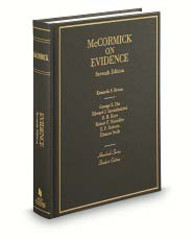 Two basic reminders about evidence appear in Eaton-Stephens v. Grapevine Colleyville ISD, an employment dispute involving a school counselor:
Two basic reminders about evidence appear in Eaton-Stephens v. Grapevine Colleyville ISD, an employment dispute involving a school counselor:
- “Eaton-Stephens also argues she should have received a spoliation inference because her computer’s contents were erased, and that, because the School District’s policy and rules required retention of the contents for several years, the only conclusion was that the action was taken in bad faith. Our cases indicate a violation of a rule or regulation pertaining to
 document retention is not per se bad faith and Eaton-Stephens cites no authority in support of such a per se bad faith rule.”
document retention is not per se bad faith and Eaton-Stephens cites no authority in support of such a per se bad faith rule.” - “We agree that the district court unduly discredited some of Eaton-Stephens’s deposition testimony as conclusory. ‘A party’s own testimony is often “self-serving,” but we do not exclude it as incompetent for that reason alone.’ Even if self-serving, a party’s own affidavit containing factual assertions based on firsthand knowledge is competent summary judgment evidence sufficient to create a fact issue.”
No. 16-11611 (Nov. 13, 2017, unpublished).
 It’s that time of year again. The polls are open until the end of November to vote for next year’s listings of Texas SuperLawyers; online voting can be done at the SuperLawyers website, here.
It’s that time of year again. The polls are open until the end of November to vote for next year’s listings of Texas SuperLawyers; online voting can be done at the SuperLawyers website, here.
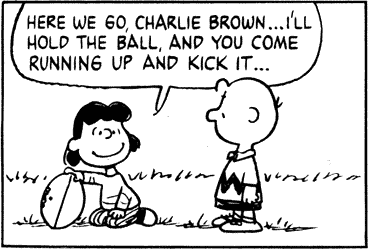 PlainsCapital asserted federal jurisdiction over a collection action on two large notes, contending that it would have to establish holder in due course status under federal law to recover (the notes came to PlainsCapital via assignment from the FDIC after a bank failure). The Fifth Circuit disagreed, reversing the district court’s summary judgment for the bank. As to the well-pleaded complaint rule, the Court observed: “PlainsCapital conflates the terms ‘holder’ and ‘holder in due course.’ A ‘holder is ‘the person in possession of a negotiable instrument that is payable either to bearer or to an identified person that is the person in possession. By contrast, a party’s status as a holder ‘in due course’ merely ‘determines the applicable defenses which a defendant . . . ‘ may assert.” PlainsCapital Bank v. Rogers, No. 16-41654 (Oct. 25, 2017).
PlainsCapital asserted federal jurisdiction over a collection action on two large notes, contending that it would have to establish holder in due course status under federal law to recover (the notes came to PlainsCapital via assignment from the FDIC after a bank failure). The Fifth Circuit disagreed, reversing the district court’s summary judgment for the bank. As to the well-pleaded complaint rule, the Court observed: “PlainsCapital conflates the terms ‘holder’ and ‘holder in due course.’ A ‘holder is ‘the person in possession of a negotiable instrument that is payable either to bearer or to an identified person that is the person in possession. By contrast, a party’s status as a holder ‘in due course’ merely ‘determines the applicable defenses which a defendant . . . ‘ may assert.” PlainsCapital Bank v. Rogers, No. 16-41654 (Oct. 25, 2017).
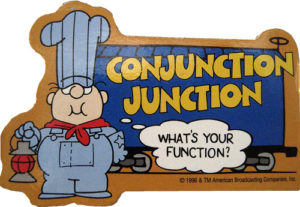 The statutory interpretation question in United States v. American Commercial Lines was the meaning of the phrase “in connection with.” The Fifth Circuit began with the plain meaning of the word “connection,” which it called “a capacious term, encompassing things that are logically or causally related or simply ‘bound up’ with one another.” Going on to review precedent and the purpose of the statute at hand, the Coourt concluded that “[i]t is, however, not so capacious as to be rendered meaningless. Conduct does not automatically occur ‘in connection with’ a contractual relationship by the mere fact that such a relationship exists. No. 16-31550 (Nov. 7, 2017) (citation omitted).
The statutory interpretation question in United States v. American Commercial Lines was the meaning of the phrase “in connection with.” The Fifth Circuit began with the plain meaning of the word “connection,” which it called “a capacious term, encompassing things that are logically or causally related or simply ‘bound up’ with one another.” Going on to review precedent and the purpose of the statute at hand, the Coourt concluded that “[i]t is, however, not so capacious as to be rendered meaningless. Conduct does not automatically occur ‘in connection with’ a contractual relationship by the mere fact that such a relationship exists. No. 16-31550 (Nov. 7, 2017) (citation omitted).
 A rare Robert Heinlein citation appeared this week in United States v. Gibson: “The trouble with conspiracies is that they rot internally.” The Moon is a Harsh Mistress 76 (1966).
A rare Robert Heinlein citation appeared this week in United States v. Gibson: “The trouble with conspiracies is that they rot internally.” The Moon is a Harsh Mistress 76 (1966).
 Griffin v. Hess Corp. involved a summary judgment for the defense on the statute of limitations, based on deposition admissions about the plaintiffs’ knowledge of relevant facts. Their testimony differed in response to the summary judgment motion, and the Fifth Circuit agreed that the different testimony did not raise a sufficient issue of fact: “Appellants’ explanation—that the deposition testimony was only meant to speak of what they knew in the present tense and not to their knowledge prior to the actual filing of the complaint—does not remedy or sufficiently explain the contradiction in light of the repeated questions about the particular date certain events took place concerning their royalty claims accruing from the Property. The deposition questions, as Appellees counsel repeatedly indicated and Appellants affirmed, related to the Property and royalties accruing from the production of oil on the Property.” No. 17-30165 (Nov. 3, 2017, unpublished).
Griffin v. Hess Corp. involved a summary judgment for the defense on the statute of limitations, based on deposition admissions about the plaintiffs’ knowledge of relevant facts. Their testimony differed in response to the summary judgment motion, and the Fifth Circuit agreed that the different testimony did not raise a sufficient issue of fact: “Appellants’ explanation—that the deposition testimony was only meant to speak of what they knew in the present tense and not to their knowledge prior to the actual filing of the complaint—does not remedy or sufficiently explain the contradiction in light of the repeated questions about the particular date certain events took place concerning their royalty claims accruing from the Property. The deposition questions, as Appellees counsel repeatedly indicated and Appellants affirmed, related to the Property and royalties accruing from the production of oil on the Property.” No. 17-30165 (Nov. 3, 2017, unpublished).
 Wildman sued about a Medtronic device implanted in his back to relieve pain, contending that the device did not last as long as the company warranted. Medtronic argued that this claim was preempted by federal law. The question, then, is whether that warranty claim imposes requirements “different from” those of the FDA – put differently, whether it would “undermine FDA regulation or reinforce it.” The Fifth Circuit found that it was not preempted, reasoning that Medtronic made a warranty of “the longevity of the entire [d]evice,” which “goes beyond what the FDA evaluated in its approval process,” as that procees focused specifically on the testing of batteries. The Court thus reversed a summary judgment for Medtronic and remanded, noting that on remand the district could consider “another argument challenging the plausibility of Wildman’s claim: that he did not allege reliance on the warranty.” Wildman v. Medtronic, Inc., No. 17-50010 (Oct. 31, 2017).
Wildman sued about a Medtronic device implanted in his back to relieve pain, contending that the device did not last as long as the company warranted. Medtronic argued that this claim was preempted by federal law. The question, then, is whether that warranty claim imposes requirements “different from” those of the FDA – put differently, whether it would “undermine FDA regulation or reinforce it.” The Fifth Circuit found that it was not preempted, reasoning that Medtronic made a warranty of “the longevity of the entire [d]evice,” which “goes beyond what the FDA evaluated in its approval process,” as that procees focused specifically on the testing of batteries. The Court thus reversed a summary judgment for Medtronic and remanded, noting that on remand the district could consider “another argument challenging the plausibility of Wildman’s claim: that he did not allege reliance on the warranty.” Wildman v. Medtronic, Inc., No. 17-50010 (Oct. 31, 2017).
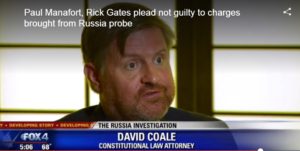 After the commercial, at about 2:30 in this news segment, I offer a couple of thoughts about recent developments in the Russia investigation.
After the commercial, at about 2:30 in this news segment, I offer a couple of thoughts about recent developments in the Russia investigation.
 The concept of a “genuine issue of material fact” is largely unquantifiable, but occasionally a case does set a quantitative landmark. In Shirey v. Wal-Mart Stores Texas, LLC, the Fifth Circuit addressed a personal injury claim asserting that a Wal-Mart store had constructive notice of a grape on the floor, holding:
The concept of a “genuine issue of material fact” is largely unquantifiable, but occasionally a case does set a quantitative landmark. In Shirey v. Wal-Mart Stores Texas, LLC, the Fifth Circuit addressed a personal injury claim asserting that a Wal-Mart store had constructive notice of a grape on the floor, holding:
Photographic and video evidence demonstrate that the grape was, as the district court noted, almost invisible on the off-white floor. The evidence also fails to establish that any Wal-Mart employee was in proximity to the grape for a sufficient period of time. The few seconds during which the employee passed by the grape did not provide an objectively reasonable opportunity for him to see it, notwithstanding his employer’s policy that he perform visual “sweeps” for hazards. Under these circumstances, the seventeen minutes during which the inconspicuous grape was on the floor did not afford Wal-Mart a reasonable time to discover and remove the hazard.
No. 17-20298 (Oct. 30, 2017, unpublished) (emphasis added).
 Among other Twombly problems, the Fifth Circuit criticized a bankruptcy trustee’s claims about excessive bonuses, noting: “The Trustee does not explain how ATP’s compensation was excessive in comparison to other similarly sized public companies in the oil and gas industry at the time. Indeed,the Trustee offers no metric or explanation for finding the bonuses ‘exorbitant.'” And in this procedural setting, “these pleading deficiencies are ‘particularly striking’ because the Trustee has ample access to ATP’s books and records.” Tow v. Bulmahn, No. 17-30077 (Oct. 27, 2017, unpublished).
Among other Twombly problems, the Fifth Circuit criticized a bankruptcy trustee’s claims about excessive bonuses, noting: “The Trustee does not explain how ATP’s compensation was excessive in comparison to other similarly sized public companies in the oil and gas industry at the time. Indeed,the Trustee offers no metric or explanation for finding the bonuses ‘exorbitant.'” And in this procedural setting, “these pleading deficiencies are ‘particularly striking’ because the Trustee has ample access to ATP’s books and records.” Tow v. Bulmahn, No. 17-30077 (Oct. 27, 2017, unpublished).
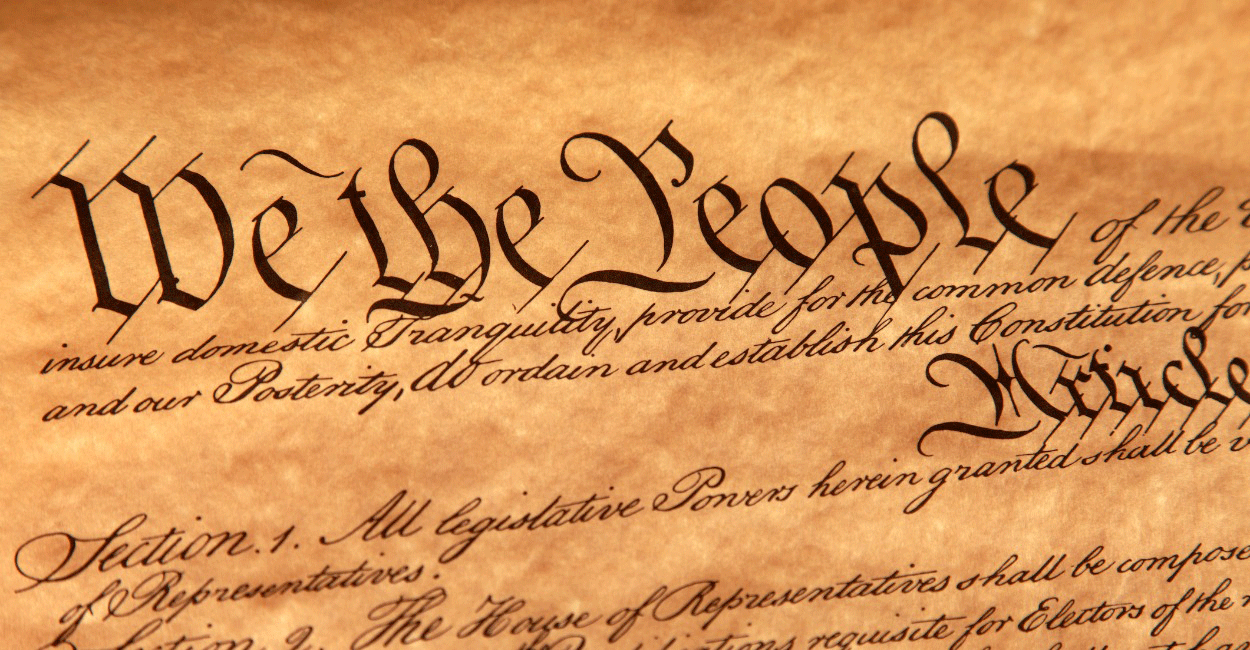 While it does not do so every day, or for that matter even every year, Fifth Circuit opinions draw powerful boundary lines around government activity. One recent example is St. Joseph Abbey v. Castille, 712 F.3d 215 (5th Cir. 2013), about the limits that substantive due process places on economic regulation. Another such line-drawing case appeared this month in Jauch v. Choctaw County, which found that qualified immunity did not protect a sheriff from the following violation of due process:
While it does not do so every day, or for that matter even every year, Fifth Circuit opinions draw powerful boundary lines around government activity. One recent example is St. Joseph Abbey v. Castille, 712 F.3d 215 (5th Cir. 2013), about the limits that substantive due process places on economic regulation. Another such line-drawing case appeared this month in Jauch v. Choctaw County, which found that qualified immunity did not protect a sheriff from the following violation of due process:
On April 26, 2012, Starkville Police Department officers pulled Jauch over, issued her several traffic tickets, and informed her of an outstanding misdemeanor warrant in Choctaw County. Choctaw County deputies took custody of Jauch and transported her to the Choctaw County Jail where, the next morning, she was served with the misdemeanor warrant and the capias. Jauch cleared the misdemeanor warrant within a few days. She nonetheless
remained detained on the capias, and her requests to be brought before a judge and allowed to post bail were denied. Jail officials informed Jauch that Sheriff Halford had confirmed she could not be taken before a judge until August when the next term of the Circuit Court commenced. When a friend of Jauch’s reached the sheriff on the telephone, he told her the same thing. Jauch’s protestations of innocence were ineffectual.Ninety-six days after being taken into custody, Jauch’s case moved forward. She received an appointed attorney, waived formal arraignment, had bail set, and had a trial date set. Six days later, on August 6, 2012, she posted bail. Before the end of the month, the prosecutor reviewed the evidence against Jauch and promptly moved to dismiss the charge. On January 29, 2013, the Circuit Court of Choctaw County entered the dismissal. It is undisputed that Jauch was innocent all along, as she had claimed from behind bars.
No. 16-60690 (Oct. 24, 2017).
 Among other holdings in a breach-of-warranty dispute about an aircraft engine, the Fifth Circuit reversed a finding that the manufacturer breached an express warranty by not repairing the engine in a timely manner. Because, under Texas law, “courts will not rewrite agremeents to insert provisions parties could have included,” “time is not of the essence of a contract unless the contract explicitly makes it so . . . .” Becker v. Continental Motors, Inc., No. 16-10166 (Oct. 3, 2017).
Among other holdings in a breach-of-warranty dispute about an aircraft engine, the Fifth Circuit reversed a finding that the manufacturer breached an express warranty by not repairing the engine in a timely manner. Because, under Texas law, “courts will not rewrite agremeents to insert provisions parties could have included,” “time is not of the essence of a contract unless the contract explicitly makes it so . . . .” Becker v. Continental Motors, Inc., No. 16-10166 (Oct. 3, 2017).
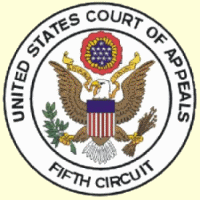 The Fifth Circuit describes its newly-created Pro Bono Program as follows. Great opportunity for quality appellate experience!
The Fifth Circuit describes its newly-created Pro Bono Program as follows. Great opportunity for quality appellate experience!
“The Program assists the Court by facilitating the appointment of pro bono counsel to represent pro se litigants. Pro Bono Panel members will, at the Court’s invitation, be appointed in civil appeals that, for example, present issues of first impression, complex facts or legal questions, or potentially meritorious claims warranting further briefing and/or oral argument.
Pro bono appointments are made by the Court, and are limited to proceedings before this Court. Although oral argument is not guaranteed, cases selected for the Program are likely to meet the Court’s criteria for granting oral argument.
Attorneys wishing to join the Pro Bono Panel should submit to the CMJS Office a cover letter (including statement of types of cases, if any, that counsel prefers or does not prefer), resumé, writing sample (appellate brief or brief of substantive motion), and statement of good standing in the Fifth Circuit Bar. Applications for panel membership should be emailed to the CMJS Office at probono@ca5.uscourts.gov. Questions about the program may be directed to Kate Clark, Administrative Attorney, at that email address or by telephone at 504-310-7799.”
 The question of timely notice to a carrier can give rise to close questions about insurance coverage. Nautilus Ins. Co. v. Miranda-Mondragon, however, presented a straightforward issue: “The first notice Nautilus received of the lawsuit came from Miranda-Mondragon’s counsel 41 days after the state court entered default judgment . . . . The delayed notice prejudiced Nautilus as a matter of law and relieved Nautilus of liability under the policy.” No. 17-20261 (Oct. 20, 2017, unpublished).
The question of timely notice to a carrier can give rise to close questions about insurance coverage. Nautilus Ins. Co. v. Miranda-Mondragon, however, presented a straightforward issue: “The first notice Nautilus received of the lawsuit came from Miranda-Mondragon’s counsel 41 days after the state court entered default judgment . . . . The delayed notice prejudiced Nautilus as a matter of law and relieved Nautilus of liability under the policy.” No. 17-20261 (Oct. 20, 2017, unpublished).
 Atlas Trading sued AT&T based on the “filed rate doctrine,” which prohibits a common carrier from charging rates other than those on file with the FCC. The Fifth Circuit affirmed the dismissal of that claim on the pleadings; after a thorough discussion of the requirements of Twombly and Iqbal, the Court observed:
Atlas Trading sued AT&T based on the “filed rate doctrine,” which prohibits a common carrier from charging rates other than those on file with the FCC. The Fifth Circuit affirmed the dismissal of that claim on the pleadings; after a thorough discussion of the requirements of Twombly and Iqbal, the Court observed:
Atlas has neither pled nor shown, though, how these charges are inconsistent with the tariffed rates. That the terms are not found in the tariffs is insufficient. For example, it could allege what it should have been charged under the tariffed rate or compared that to what it was actually charged. It simply asserts that charges such as the composite access-rate charge are not found in the tariffs and from that asks the court to let its claims go forward.
Even accepting as true Atlas’s allegation that the labels for the charges are not found in the tariffs, we cannot make a reasonable inference that the defendants have violated the filed-rate doctrine. At most, we can only infer that certain labels for charges are not found in the tariffs filed with the FCC. Such an inference is not the equivalent of a plausible allegation that the defendants have charged Atlas different rates from those on file with the FCC.
Atlas Trading v. AT&T, No. 16-11661 (Oct. 18, 2017) (emphasis added).
 In a reminder of the surprising complexity that can surround litigation about a party’s standing to bring a claim, in Intrepid Ship Mgmnt v. Malin Int’l Ship Repair, the Fifth Circuit noted a source of potential confusion about the applicable procedure: “Although a dismissal for lack of standing is appropriately judged under Federal Rule of Civil Procedure 12(b)(1), which allows a court to make limited findings of fact, the parties have argued this case under the standards applicable to ordinary summary judgment motions. Compare Lane v. Halliburton, 529 F.3d 548, 557 (5th Cir. 2008) (explaining that the district court can resolve disputed facts as necessary to decide a challenge to subject atter jurisdiction), withInt’l Marine LLC v. Integrity Fisheries, Inc., 860 F.3d 754, 759 (5th Cir. 2017) (applying de novo review to summary judgment cases, explaining that “[s]ummary judgment is appropriate when ‘there is no genuine dispute as to any material fact.’”)”. No. 16-41074 (Oct. 11, 2017) (unpublished).
In a reminder of the surprising complexity that can surround litigation about a party’s standing to bring a claim, in Intrepid Ship Mgmnt v. Malin Int’l Ship Repair, the Fifth Circuit noted a source of potential confusion about the applicable procedure: “Although a dismissal for lack of standing is appropriately judged under Federal Rule of Civil Procedure 12(b)(1), which allows a court to make limited findings of fact, the parties have argued this case under the standards applicable to ordinary summary judgment motions. Compare Lane v. Halliburton, 529 F.3d 548, 557 (5th Cir. 2008) (explaining that the district court can resolve disputed facts as necessary to decide a challenge to subject atter jurisdiction), withInt’l Marine LLC v. Integrity Fisheries, Inc., 860 F.3d 754, 759 (5th Cir. 2017) (applying de novo review to summary judgment cases, explaining that “[s]ummary judgment is appropriate when ‘there is no genuine dispute as to any material fact.’”)”. No. 16-41074 (Oct. 11, 2017) (unpublished).
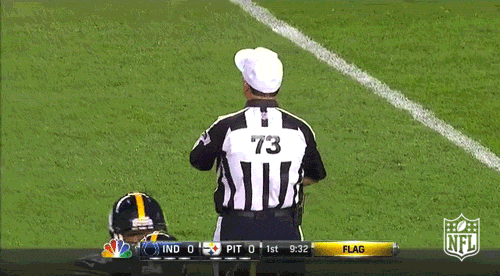 In a 2-1 decision, the Fifth Circuit found that Ezekiel Elliott failed to exhaust remedies within the NFL’s dispute-resolution process before filing suit, meaning that the federal courts lacked subject matter jurisdiction over his complaints. A dissent found a sufficient question about the adequacy of the process to justify the exercise of jurisdiction under the relevant authorities. NFLPA v. NFL, No. 17-40936 (Oct. 12, 2017). While of enormous interest to Cowboys fans, so far as arbitration goes, the opinion is centered on issues unique to collective bargaining agreements.
In a 2-1 decision, the Fifth Circuit found that Ezekiel Elliott failed to exhaust remedies within the NFL’s dispute-resolution process before filing suit, meaning that the federal courts lacked subject matter jurisdiction over his complaints. A dissent found a sufficient question about the adequacy of the process to justify the exercise of jurisdiction under the relevant authorities. NFLPA v. NFL, No. 17-40936 (Oct. 12, 2017). While of enormous interest to Cowboys fans, so far as arbitration goes, the opinion is centered on issues unique to collective bargaining agreements.
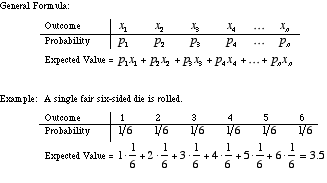 Plaintiff, invoking classical concepts about the measure of damages, argued that a “reliance” or “restitution” measure was superior to “expectancy” as applied to the breach of a stock-purchase contract. The Fifth Circuit disagreed: “Here, the jury found that there was an express contract, the stock agreement, so under Texas law, Jinsun may not recover anything beyond its expectancy damages unless Jinsun shows that the stock agreement is an exception to the general rule. Jinsun has failed to do so. Here, Jinsun expected to receive $56,000 from Alidad in exchange for the block of Luxeyard stock. Whether the stock price went up or down following the stock transfer, Jinsun was entitled to receive $56,000 from Alidad—no more and no less. Its expectancy damages under the plain terms of the express contract are therefore $56,000—no more and no less.” Jinsun LLC v. Mireskandari, No. 16-20275 (Oct. 5, 2017).
Plaintiff, invoking classical concepts about the measure of damages, argued that a “reliance” or “restitution” measure was superior to “expectancy” as applied to the breach of a stock-purchase contract. The Fifth Circuit disagreed: “Here, the jury found that there was an express contract, the stock agreement, so under Texas law, Jinsun may not recover anything beyond its expectancy damages unless Jinsun shows that the stock agreement is an exception to the general rule. Jinsun has failed to do so. Here, Jinsun expected to receive $56,000 from Alidad in exchange for the block of Luxeyard stock. Whether the stock price went up or down following the stock transfer, Jinsun was entitled to receive $56,000 from Alidad—no more and no less. Its expectancy damages under the plain terms of the express contract are therefore $56,000—no more and no less.” Jinsun LLC v. Mireskandari, No. 16-20275 (Oct. 5, 2017).
As a counterpoint to the recent case of Boerschig v. Trans-Pecos Pipeline, which rejected a mootness challenge in an injunction case about a condemnation (reasoning that the court could still “order that Trans-Pecos return Boerschig’s land to its precondemnation state.”), there is Dick v. Colorado Housing Enterprises, LLC, which  found a request for an injunction became moot after the allegedly wrongful foreclosure occurred (rejecting “Plaintiff-Appellant[‘s] assert[ion] that because the Defendants-Appellees were the successful bidders at the foreclosure sale, this court can order them to cancel or rescind the foreclosure sale.”) The distinction between the two rests on case law unique to foreclosures, which the Dick panel used the Fifth Circuit’s “rule of orderliness” to organize and apply. No. 17-10357 (Oct. 4, 2017).
found a request for an injunction became moot after the allegedly wrongful foreclosure occurred (rejecting “Plaintiff-Appellant[‘s] assert[ion] that because the Defendants-Appellees were the successful bidders at the foreclosure sale, this court can order them to cancel or rescind the foreclosure sale.”) The distinction between the two rests on case law unique to foreclosures, which the Dick panel used the Fifth Circuit’s “rule of orderliness” to organize and apply. No. 17-10357 (Oct. 4, 2017).
 Ramirez, on work trips to West Texas, contracted a fungal infection that led to the loss of an eye. His employee insurance plan would pay benefits “if an employee is injured as a result of an Accident, and that Injury is independent of Sickness and all other causes.” Based on the definitions of “Accident and “Sickness” in the policy, the Fifth Circuit affirmed summary judgment for the insurer. Ramirez tried to come within a “carve-back” provision at the end of the “Accident” definition, which extended coverage to “bacterial infection that is the natural and foreseeable result of an accidental external bodily Injury or accidental food poisoning, but the Court concluded that “neither the policy’s language nor its structure indicates that this provision applies beyond those two specific occurrences.” Ramirez v. United of Omaha Life Ins. Co., No. 16-11660 (Oct. 6, 2017).
Ramirez, on work trips to West Texas, contracted a fungal infection that led to the loss of an eye. His employee insurance plan would pay benefits “if an employee is injured as a result of an Accident, and that Injury is independent of Sickness and all other causes.” Based on the definitions of “Accident and “Sickness” in the policy, the Fifth Circuit affirmed summary judgment for the insurer. Ramirez tried to come within a “carve-back” provision at the end of the “Accident” definition, which extended coverage to “bacterial infection that is the natural and foreseeable result of an accidental external bodily Injury or accidental food poisoning, but the Court concluded that “neither the policy’s language nor its structure indicates that this provision applies beyond those two specific occurrences.” Ramirez v. United of Omaha Life Ins. Co., No. 16-11660 (Oct. 6, 2017).
 In Boerschig v. Trans-Pecos Pipeline LLC, an effort to enjoin state-court eminent domain proceedings in federal court: “Boerschig contend[ed] that by ceding condemnation power to a private company, Texas eminent domain law offends due process. His argument principally relies on the private nondelegation doctrine, a nook of Fourteenth Amendment law long recognized but seldom invoked.” That obscure but important doctrine provides that “when private parties have the unrestrained ability to decide whether another citizen’s property rights can be restricted, any resulting deprivation happens without ‘process of law.'” Unfortunately for Boehrschig: “The Texas scheme allowing gas pipelines to condemn property does not appear to suffer from either of the twin ills that doomed these zoning and wagesetting laws. It imposes a standard to guide the pipeline companies—that the taking is necessary for “public use”—and provides judicial review of that determination that prevents the company from having the final say.” The Court also rejected a mootness challenge based on the construction of the relevant pipeline, observing that it could still “order that Trans-Pecos return Boerschig’s land to its precondemnation state.” No. 16-50931-CV (Oct. 3, 2017).
In Boerschig v. Trans-Pecos Pipeline LLC, an effort to enjoin state-court eminent domain proceedings in federal court: “Boerschig contend[ed] that by ceding condemnation power to a private company, Texas eminent domain law offends due process. His argument principally relies on the private nondelegation doctrine, a nook of Fourteenth Amendment law long recognized but seldom invoked.” That obscure but important doctrine provides that “when private parties have the unrestrained ability to decide whether another citizen’s property rights can be restricted, any resulting deprivation happens without ‘process of law.'” Unfortunately for Boehrschig: “The Texas scheme allowing gas pipelines to condemn property does not appear to suffer from either of the twin ills that doomed these zoning and wagesetting laws. It imposes a standard to guide the pipeline companies—that the taking is necessary for “public use”—and provides judicial review of that determination that prevents the company from having the final say.” The Court also rejected a mootness challenge based on the construction of the relevant pipeline, observing that it could still “order that Trans-Pecos return Boerschig’s land to its precondemnation state.” No. 16-50931-CV (Oct. 3, 2017).
 Welding-safety regulations enacted under the Outer Continental Shelf Lands Act contain this definition: “You means a lessee, the owner or holder of operating rights, a designated operator or agent of the lessee(s), a pipeline right-of-way holder, or a State lesssee granted a right-of-use and easement.” In United States v. Moss, the Fifth Circuit affirmed the dismissal of criminal charges against a contractor based on this set of regulations, agreeing that “you” – as defined above, and applied consistently with relevant canons of interpretation – could not be read to include a contractor. Weighing heavily against the government’s position was a long history of “virtually non-existent past enforcement of OCSLA regulations against contractors.” No. 16-30561 (Sept. 27, 2017).
Welding-safety regulations enacted under the Outer Continental Shelf Lands Act contain this definition: “You means a lessee, the owner or holder of operating rights, a designated operator or agent of the lessee(s), a pipeline right-of-way holder, or a State lesssee granted a right-of-use and easement.” In United States v. Moss, the Fifth Circuit affirmed the dismissal of criminal charges against a contractor based on this set of regulations, agreeing that “you” – as defined above, and applied consistently with relevant canons of interpretation – could not be read to include a contractor. Weighing heavily against the government’s position was a long history of “virtually non-existent past enforcement of OCSLA regulations against contractors.” No. 16-30561 (Sept. 27, 2017).
 The contentious, high-profile False Claims Act case of U.S. ex rel Harman v. Trinity Industries ended with complete victory for the defense, based substantially on the U.S. Supreme Court’s recent opinion about the element of “materiality” in Universal Health Services v. U.S. ex rel. Escobar, 136 S.Ct.1989 (2016). While the Harman opinion touches on many other aspects of the trial evidence and the requirements of the FCA, its central teaching its is application of Escobar, as applied
The contentious, high-profile False Claims Act case of U.S. ex rel Harman v. Trinity Industries ended with complete victory for the defense, based substantially on the U.S. Supreme Court’s recent opinion about the element of “materiality” in Universal Health Services v. U.S. ex rel. Escobar, 136 S.Ct.1989 (2016). While the Harman opinion touches on many other aspects of the trial evidence and the requirements of the FCA, its central teaching its is application of Escobar, as applied  to the government’s interaction with and payment for the highway guardrails at issue: “[I]f the Government pays a particular claim in full despite its actual knowledge that certain requirements were violated, that is very strong evidence that those requirements are not material. Or, if the Government regularly pays a particular type of claim in full despite actual knowledge that certain requirements were violated, and has signaled no change in position, that is strong evidence that the requirements are not material.” No. 15-41172 (Sept. 29, 2017).
to the government’s interaction with and payment for the highway guardrails at issue: “[I]f the Government pays a particular claim in full despite its actual knowledge that certain requirements were violated, that is very strong evidence that those requirements are not material. Or, if the Government regularly pays a particular type of claim in full despite actual knowledge that certain requirements were violated, and has signaled no change in position, that is strong evidence that the requirements are not material.” No. 15-41172 (Sept. 29, 2017).
 Thanks to Mary Douglass and the Bar Association of the Fifth Federal Circuit for the chance to give a commercial litigation update at the 2017 Appellate Advocacy Seminar in New Orleans; here is the PowerPoint that I used for the presentation yesterday.
Thanks to Mary Douglass and the Bar Association of the Fifth Federal Circuit for the chance to give a commercial litigation update at the 2017 Appellate Advocacy Seminar in New Orleans; here is the PowerPoint that I used for the presentation yesterday.
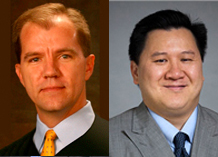 Former Texas Solicitor General Jim Ho and Texas Supreme Court Justice Don Willett have been nominated to the U.S. Court of Appeals for the Fifth Circuit. The Texas Lawbook features a thorough discussion of the nominations, as does the Dallas Morning News. From Louisiana, President Trump has also nominated Stuart Duncan and U.S. District Judge Kurt Engelhardt; The Advocate has a good summary of their backgrounds.
Former Texas Solicitor General Jim Ho and Texas Supreme Court Justice Don Willett have been nominated to the U.S. Court of Appeals for the Fifth Circuit. The Texas Lawbook features a thorough discussion of the nominations, as does the Dallas Morning News. From Louisiana, President Trump has also nominated Stuart Duncan and U.S. District Judge Kurt Engelhardt; The Advocate has a good summary of their backgrounds.
 In Mainali v. Covington Specialty Ins. Co., the Fifth Circuit addressed “whether a payment made to comply with an appraisal award, which in most if not all cases is going to be paid after the 60-day window [set by the Texas Prompt Payment statute], is subject to [a statutory] penalty.” In an Erie analysis, the Court followed intermediate Texas authority that held such a payment was not subject to those statutory penalties, observing: “Covington was not trying to avoid payment of the claim; it was invoking a contractually agreed to mechanism for assessing the amount it owed.” No. 17-10350 (revised Sept. 27, 2017).
In Mainali v. Covington Specialty Ins. Co., the Fifth Circuit addressed “whether a payment made to comply with an appraisal award, which in most if not all cases is going to be paid after the 60-day window [set by the Texas Prompt Payment statute], is subject to [a statutory] penalty.” In an Erie analysis, the Court followed intermediate Texas authority that held such a payment was not subject to those statutory penalties, observing: “Covington was not trying to avoid payment of the claim; it was invoking a contractually agreed to mechanism for assessing the amount it owed.” No. 17-10350 (revised Sept. 27, 2017).
 TDX Energy v. Chesapeake Operating begins with an entertaining – and accurate – summary of the challenge presented by oil and gas overproduction. Brought forward into today’s market and the parties’ dispute, at issue was a Louisiana statute, under which an operator can forfeit the right to deduct drilling costs on an “unleased oil and gas interest” – defined as one “upon which the operator or producer has no valid oil, gas, or mineral lease. (Here, the relevant interests were leased to TDX but not the operator, Chesapeake.) The Fifth Circuit elected to follow a Lousiana intermediate court opinion that it found to be consistent with the applicable canons of interpretation, and concluded that “The most natural reading of [the two relevant sections together] is that operators forfeit their right to contribution when they fail to send timely reports to lessees with oil and gas interests in lands upon which the operator has no lease . . . .” 857 F.3d 253 (5th Cir. 2017).
TDX Energy v. Chesapeake Operating begins with an entertaining – and accurate – summary of the challenge presented by oil and gas overproduction. Brought forward into today’s market and the parties’ dispute, at issue was a Louisiana statute, under which an operator can forfeit the right to deduct drilling costs on an “unleased oil and gas interest” – defined as one “upon which the operator or producer has no valid oil, gas, or mineral lease. (Here, the relevant interests were leased to TDX but not the operator, Chesapeake.) The Fifth Circuit elected to follow a Lousiana intermediate court opinion that it found to be consistent with the applicable canons of interpretation, and concluded that “The most natural reading of [the two relevant sections together] is that operators forfeit their right to contribution when they fail to send timely reports to lessees with oil and gas interests in lands upon which the operator has no lease . . . .” 857 F.3d 253 (5th Cir. 2017).
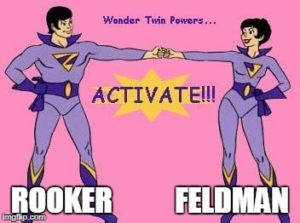 After removing a dispute about a home equity loan foreclosure, Deutsche Bank argued that a state court order that had vacated an earlier order allowing the foreclosure was invalid. The homeowner argued that review was precluded by the Rooker-Feldman doctrine; the Fifth Circuit disagreed. The doctrine did not apply because (1) the “vacating order” was not final under Texas law, and (2) was void under Texas law because the state court had no authority to enter it under the specific state rules of procedure applicable to foreclosures. Unfortunately for the homeowner, the original order authorizing the foreclosure was not final either, allowing review of the merits and affirmance of summary judgment for the Bank. Burciaga v. Deutsche Bank Nat’l Trust Co., No. 16-40826 (Sept. 18, 2017).
After removing a dispute about a home equity loan foreclosure, Deutsche Bank argued that a state court order that had vacated an earlier order allowing the foreclosure was invalid. The homeowner argued that review was precluded by the Rooker-Feldman doctrine; the Fifth Circuit disagreed. The doctrine did not apply because (1) the “vacating order” was not final under Texas law, and (2) was void under Texas law because the state court had no authority to enter it under the specific state rules of procedure applicable to foreclosures. Unfortunately for the homeowner, the original order authorizing the foreclosure was not final either, allowing review of the merits and affirmance of summary judgment for the Bank. Burciaga v. Deutsche Bank Nat’l Trust Co., No. 16-40826 (Sept. 18, 2017).
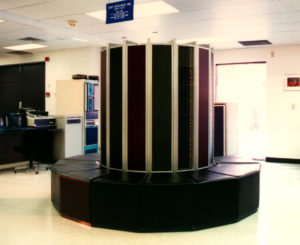 The four-part venue test adopted by the Eastern District of Texas after the Heartland opinion was short-lived, as the Federal Circuit granted mandamus relief in In re Cray, noting: “[O]ur analysis of the case law and statute reveal three general requirements relevant to the inquiry: (1) there must be a physical place in the district; (2) it must be a regular and established place of business; and (3) it must be the place of the defendant.”
The four-part venue test adopted by the Eastern District of Texas after the Heartland opinion was short-lived, as the Federal Circuit granted mandamus relief in In re Cray, noting: “[O]ur analysis of the case law and statute reveal three general requirements relevant to the inquiry: (1) there must be a physical place in the district; (2) it must be a regular and established place of business; and (3) it must be the place of the defendant.”
 Today this blog celebrates its 6th birthday! Thank you for reading. And if you want to help celebrate, consider mixing up some Crabmeat Yvonne, a staple of New Orleans’s great Galatoire’s.
Today this blog celebrates its 6th birthday! Thank you for reading. And if you want to help celebrate, consider mixing up some Crabmeat Yvonne, a staple of New Orleans’s great Galatoire’s.
 The Fifth Circuit affirmed an award of $232,809.92 in costs on an unsuccessful FCA claim, noting: “The district court acknowledged that [Defendant]’s invoices were not detailed but explained that, given nearly three million pages of copies [Defendant] produced for its defense in this case,it would have been impossible for [Defendant] to explain each page’s usefulness.” It also allowed recovery for “costs relating to (1) TIFF image conversion, (2) scanning, (3) formatting electronic documents, and (4) PDF conversion – per [28 U.S.C.] § 1920(4), which allows recovery for ‘exemplification’ and ‘making copies’ of case materials.” In a similar vein, the Court credited the district court’s explanation that the statute “allow[s] a prevailing party to recover the costs of complying with an opposing party’s request to reformat electronic documents or scan hard copies of documents.” United States ex rel King v. Solvay Pharmaceuticals, Inc., No. 160259 (Sept. 12, 2017).
The Fifth Circuit affirmed an award of $232,809.92 in costs on an unsuccessful FCA claim, noting: “The district court acknowledged that [Defendant]’s invoices were not detailed but explained that, given nearly three million pages of copies [Defendant] produced for its defense in this case,it would have been impossible for [Defendant] to explain each page’s usefulness.” It also allowed recovery for “costs relating to (1) TIFF image conversion, (2) scanning, (3) formatting electronic documents, and (4) PDF conversion – per [28 U.S.C.] § 1920(4), which allows recovery for ‘exemplification’ and ‘making copies’ of case materials.” In a similar vein, the Court credited the district court’s explanation that the statute “allow[s] a prevailing party to recover the costs of complying with an opposing party’s request to reformat electronic documents or scan hard copies of documents.” United States ex rel King v. Solvay Pharmaceuticals, Inc., No. 160259 (Sept. 12, 2017).
 The parties in IQ Products Co. v. WD-40 Co.disputed whether an arbitration agreement was limited to “propane/butane-propelled produicts” or also “carbon dioxide-propelled products.” The party who prevailed in the arbitration relied mainly on the parties’ subsequent conduct to justify the broader reading, and the Fifth Circuit agreed (applying California law): “Considering . . . ‘the words used . . . as well as extrinsic evidence of such objective matters and the surrounding circumstances under which the parties negotiated [and] entered into the contract; the object, nature and subject matter of the contract; and the subsequent conduct of the parties . . . WD-40’s assertion is . . . not wholly groundless.” No. 16-20595 (Sept. 13, 2017).
The parties in IQ Products Co. v. WD-40 Co.disputed whether an arbitration agreement was limited to “propane/butane-propelled produicts” or also “carbon dioxide-propelled products.” The party who prevailed in the arbitration relied mainly on the parties’ subsequent conduct to justify the broader reading, and the Fifth Circuit agreed (applying California law): “Considering . . . ‘the words used . . . as well as extrinsic evidence of such objective matters and the surrounding circumstances under which the parties negotiated [and] entered into the contract; the object, nature and subject matter of the contract; and the subsequent conduct of the parties . . . WD-40’s assertion is . . . not wholly groundless.” No. 16-20595 (Sept. 13, 2017).
 The high-profile dispute between Dallas Cowboys star Ezekiel Elliott and the NFL Players’ Association, on the one hand, and the NFL on the other, has reached the Fifth Circuit after the district court’s grant of a preliminary injunction against Elliott’s suspension by the league. The NFL has moved for an interim stay; the successful plaintiffs have responded; and a motions panel of the Court will consider that issue in the week ahead.
The high-profile dispute between Dallas Cowboys star Ezekiel Elliott and the NFL Players’ Association, on the one hand, and the NFL on the other, has reached the Fifth Circuit after the district court’s grant of a preliminary injunction against Elliott’s suspension by the league. The NFL has moved for an interim stay; the successful plaintiffs have responded; and a motions panel of the Court will consider that issue in the week ahead.
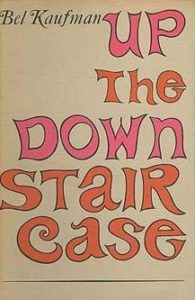 In AMA Discount, Inc. v. Seneca Specialty Ins. Co., the Fifth Circuit rejected an interlocutory appeal on a question of bad faith claims handling under Louisiana insurane law, noting that a potentially conflicting district court decision had recently settled on appeal, and the parties actually disputed the application of law to fact rather than the controlling legal standard. The Court acknowledged that this ruling differed from that of a prior motions panel, but observered that at this stage, the case “has the benefit of full briefing and a completed record.” The Court concluded: “Perhaps an interlocutory certification would ‘materially advance the termination’ of this litigation. If that were the decisive question, of course, there would be few roadblocks to interlocutory appeals of legal issues.” No. 16-31158 (Sept. 11, 2017, unpublished).
In AMA Discount, Inc. v. Seneca Specialty Ins. Co., the Fifth Circuit rejected an interlocutory appeal on a question of bad faith claims handling under Louisiana insurane law, noting that a potentially conflicting district court decision had recently settled on appeal, and the parties actually disputed the application of law to fact rather than the controlling legal standard. The Court acknowledged that this ruling differed from that of a prior motions panel, but observered that at this stage, the case “has the benefit of full briefing and a completed record.” The Court concluded: “Perhaps an interlocutory certification would ‘materially advance the termination’ of this litigation. If that were the decisive question, of course, there would be few roadblocks to interlocutory appeals of legal issues.” No. 16-31158 (Sept. 11, 2017, unpublished).
 The panel majority in Veasey v. Abbott concluded that a stay was warranted during the appeal of an injunction against certain “voter ID” laws, focusing on the likelihood-of-success element of the standard four-part test: “As the State explains, each of the 27 voters identified – whose testimony the plaintiffs used to support their discriminatory-effect claim – can vote without impediment under SB 5. The State has made a strong showing that htis reasonable-impediment procedure remedies plaintiffs’ alleged harm and thus forecloses plaintiffs’ injunctive relief.”
The panel majority in Veasey v. Abbott concluded that a stay was warranted during the appeal of an injunction against certain “voter ID” laws, focusing on the likelihood-of-success element of the standard four-part test: “As the State explains, each of the 27 voters identified – whose testimony the plaintiffs used to support their discriminatory-effect claim – can vote without impediment under SB 5. The State has made a strong showing that htis reasonable-impediment procedure remedies plaintiffs’ alleged harm and thus forecloses plaintiffs’ injunctive relief.”- A dissent disagreed as to the elements of the four-part test, and the overrarching
 concept of “preserving the status quo”: “Neither side would be irreparably harmed by continuing to operate under the same election procedures they have been operating under for more than a year. If a stay is granted at all, then it should be comprehensive. In other words, the correct approach would be to stay both the district court’s order and the new legislation.” No. 17-40884 (Sept. 5, 2017).
concept of “preserving the status quo”: “Neither side would be irreparably harmed by continuing to operate under the same election procedures they have been operating under for more than a year. If a stay is granted at all, then it should be comprehensive. In other words, the correct approach would be to stay both the district court’s order and the new legislation.” No. 17-40884 (Sept. 5, 2017).
 2017 has not been kind to the administrative state, and neither was Burgess v. FDIC, No. 17-60579 (Sept. 7, 2017). An FDIC administrative law judge concluded that Burgess had misused bank property, the FDIC Board adopted those recommendations, and Burgess sought review in the Fifth Circuit. He sought an interim stay based upon his argument that the ALJ was an “inferior Officer” within the meaning of the Constitution’s Appointments Clause, and the Fifth Circuit agreed, citing the Supreme Court’s analysis of a similar position involving the U.S. Tax Court in Freytag v. Commissioner of Internal Revenue, 501 U.S. 868 (1991). In so doing, the Court parted ways with the D.C. Circuit’s analysis in Landry v. FDIC, 204 F.3d 1125 (2000), by concluding that final decision-making authority was not a prerequisite to Officer status. Accordingly, the Court granted the interim stay, finding that Burgess “has established a likelihood of success on the merits of his Appointments Clause challenge.”
2017 has not been kind to the administrative state, and neither was Burgess v. FDIC, No. 17-60579 (Sept. 7, 2017). An FDIC administrative law judge concluded that Burgess had misused bank property, the FDIC Board adopted those recommendations, and Burgess sought review in the Fifth Circuit. He sought an interim stay based upon his argument that the ALJ was an “inferior Officer” within the meaning of the Constitution’s Appointments Clause, and the Fifth Circuit agreed, citing the Supreme Court’s analysis of a similar position involving the U.S. Tax Court in Freytag v. Commissioner of Internal Revenue, 501 U.S. 868 (1991). In so doing, the Court parted ways with the D.C. Circuit’s analysis in Landry v. FDIC, 204 F.3d 1125 (2000), by concluding that final decision-making authority was not a prerequisite to Officer status. Accordingly, the Court granted the interim stay, finding that Burgess “has established a likelihood of success on the merits of his Appointments Clause challenge.”
After last week’s opinion in In re: DuPuy Orthopaedics, the plaintiffs have sought en banc review of a panel majority’s statements about the trial court’s ruling on the key issue of waiver. The petition raises interesting and basic questions about the scope of opinions. (For more on that general topic, check out David Coale & Wendy Couture, Loud Rules, 34 Pepperdine L. Rev. 715 (2007)).
last week’s opinion in In re: DuPuy Orthopaedics, the plaintiffs have sought en banc review of a panel majority’s statements about the trial court’s ruling on the key issue of waiver. The petition raises interesting and basic questions about the scope of opinions. (For more on that general topic, check out David Coale & Wendy Couture, Loud Rules, 34 Pepperdine L. Rev. 715 (2007)).
 Addressing a novel but important question, the Fifth Circuit found in that a state law attachment remedy was available to faciliate an international arbitration about a shipment of pig iron, and that federal courts had removal jurisdiction over the proceedings under the Convention on the Recognition and Enforcement of Foreign Arbital Awards. Stemcor USA v. CIA Siderurgica do Para Cosipar, No. 16-30984 (Sept. 1, 2017).
Addressing a novel but important question, the Fifth Circuit found in that a state law attachment remedy was available to faciliate an international arbitration about a shipment of pig iron, and that federal courts had removal jurisdiction over the proceedings under the Convention on the Recognition and Enforcement of Foreign Arbital Awards. Stemcor USA v. CIA Siderurgica do Para Cosipar, No. 16-30984 (Sept. 1, 2017).
